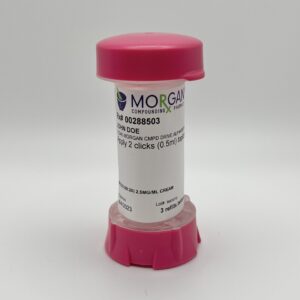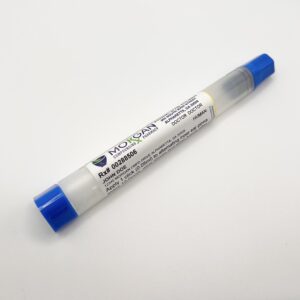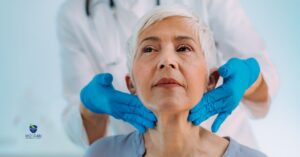How Menopause, Media Awareness, and Compounded Hormone Options Shape Conversations Between Patients and Providers
Menopause marks a major transition in a woman’s life, often accompanied by physical and emotional changes that may impact day-to-day activities. As this phase gains broader visibility through media, including documentaries like The M Factor, more women and healthcare providers engage in conversations about hormone therapy and options that may support menopausal health.
Morgan Compounding Pharmacy works with patients and healthcare professionals to prepare compounded medications that may support women experiencing menopause. By offering alternatives to mass-produced products, compounding allows for greater personalization in dosage form and hormone composition, as a provider prescribes.
Understanding Menopause and the Purpose of “The M Factor”
The M Factor: Shredding the Silence on Menopause brings attention to the conversations that most people overlook. The documentary addresses the physical, social, and personal realities of menopause — helping to highlight that this stage is not a one-size-fits-all experience.
Women may experience a broad spectrum of changes, including irregular cycles, vasomotor symptoms, sleep disturbances, mood fluctuations, and shifts in skin and bone health.
“The M Factor… it was so good!! I thought our patients would really like to know about it, it was super relatable and educational…”
– Shelby Milcheck, RPh., Morgan Compounding Pharmacist
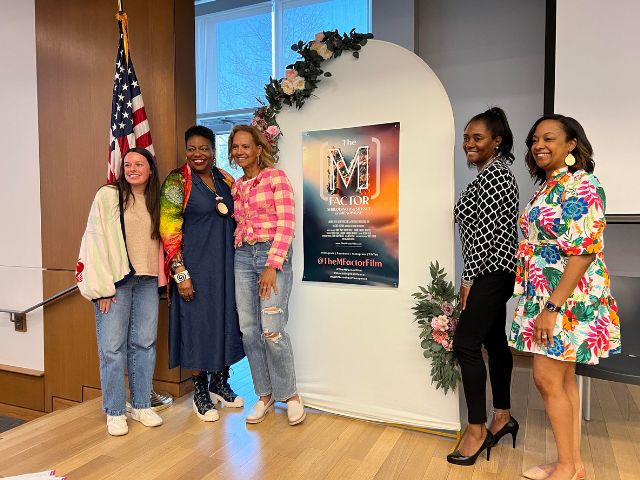
With the growing awareness created by this documentary and similar media efforts, many patients continue to seek medical advice regarding hormone changes and available support. Standard options may be unsuitable for some due to sensitivities, dosage issues, or ingredient concerns. That’s where compounded hormone therapy may offer a possible alternative under medical supervision.
What Is Compounded Hormone Therapy?
Pharmacists prepare compounded hormone medications based on a provider’s prescription. These formulations may include versions of estrogen, progesterone, testosterone, or combinations, depending on what the provider determines may be suitable for the patient.
What sets compounded options apart is the flexibility in how the medication is delivered. While commercial hormone products are limited to standard formulations and dosages, compounding allows for:
- Specific hormone combinations
- Custom dosages that may not be commercially available
- Various delivery methods, such as creams, capsules, lozenges, or transdermal gels
- Potential exclusion of specific allergens or additives
Morgan Compounding Pharmacy prepares compounded hormone therapy options in a controlled environment, following regulatory guidance and compounding standards. We formulate all prescriptions to order based on individual evaluations by the healthcare provider.

Why Hormonal Needs May Vary Among Patients
No two women experience menopause the same way. Some may only notice minor shifts, while others may experience changes that impact sleep, energy levels, or temperature regulation. These variations may influence how a provider decides to proceed with support.
Additionally, a woman’s medical history, sensitivities, and preferences may all factor into decisions made by the provider. For instance:
- Some patients may be sensitive to synthetic additives or preservatives
- Others may prefer transdermal application instead of oral capsules
- Certain hormone combinations may not exist in commercial form but may be prescribed through compounding
For these scenarios, compounded options may offer a possible path forward. However, it is always essential to work directly with a provider who has evaluated the patient’s medical profile and history.
Popular Compounded Hormone Therapy Products for Menopause & Hormonal Imbalance
Morgan Compounding Pharmacy compounds a range of formulations that healthcare professionals frequently prescribe for women navigating menopausal changes. Some of these products include:
1. Bi-Est and Tri-Est Creams
These estrogen compounds may be prescribed for topical use, often including estradiol and estriol in varying ratios. The dosage and strength are defined by the provider.
2. Progesterone Capsules or Creams
Progesterone is commonly compounded in oil-filled capsules or topical creams. Some patients may prefer one form over another, depending on ease of use and medical guidance.
3. Testosterone Creams or Gels
Although often associated with male patients, providers often prescribe low-dose testosterone to women. These are compounded into low concentrations suitable for topical use.
4. Drug Combinations
Some prescriptions require a combination of hormones in one capsule or cream, which may not be available commercially. Morgan Compounding Pharmacy prepares these in specific strengths based on provider instructions.
5. Vaginal Preparations
Some women may benefit from vaginal applications of estriol, estradiol, or compounded moisturizers. These can be compounded in various bases depending on the intended application and provider recommendations.
These compounded options are not mass-produced but are prepared in response to individual prescriptions from licensed providers.
Women’s Health OB/GYN
Why Providers Consider Compounding
Healthcare providers may consider compounding when commercially manufactured hormone medications do not align with a patient’s specific needs. This may include cases where:
- Commercial dosages are too high or too low
- Certain inactive ingredients are unsuitable for the patient
- An alternate form (cream, lozenge, etc.) is more practical
- A provider requires a specific combination of hormones in a non-standard ratio
Compounding may support clinical decision-making by giving providers flexibility when formulating prescriptions.
Frequently Asked Questions About Menopause and Compounded Hormones
Given the rising interest in menopause, especially in the wake of documentaries like The M Factor, more patients are asking questions such as:
- What’s the difference between bioidentical and synthetic hormones?
- Are compounded hormones approved by the FDA?
- Can I request a specific dose or delivery method?
- Will my insurance cover compounded medications?
- Are there alternatives if I don’t want oral hormone medication?
The term “bioidentical” generally refers to hormones that are structurally similar to those produced by the body. Some of these are available as FDA-approved products, while others are only available through compounding. Compounded medications are not FDA-approved because they are not manufactured in bulk but rather prepared individually based on prescriptions.
Patients are encouraged to discuss these questions with their provider and pharmacist. Morgan Compounding Pharmacy is available to collaborate with healthcare professionals and answer prescription-specific questions.
Provider Collaboration and Safety Considerations
Compounded hormone medications should always be prescribed and monitored by a qualified healthcare professional. Dosages may need to be adjusted over time, and patient responses should be evaluated regularly.
Morgan Compounding Pharmacy works with providers to ensure we fill prescriptions accurately, using quality-assured ingredients and prepared in a clean, controlled setting.
Safety is a shared responsibility. Providers, patients, and pharmacists must maintain open communication to ensure that compounded prescriptions are used as intended and monitored appropriately.
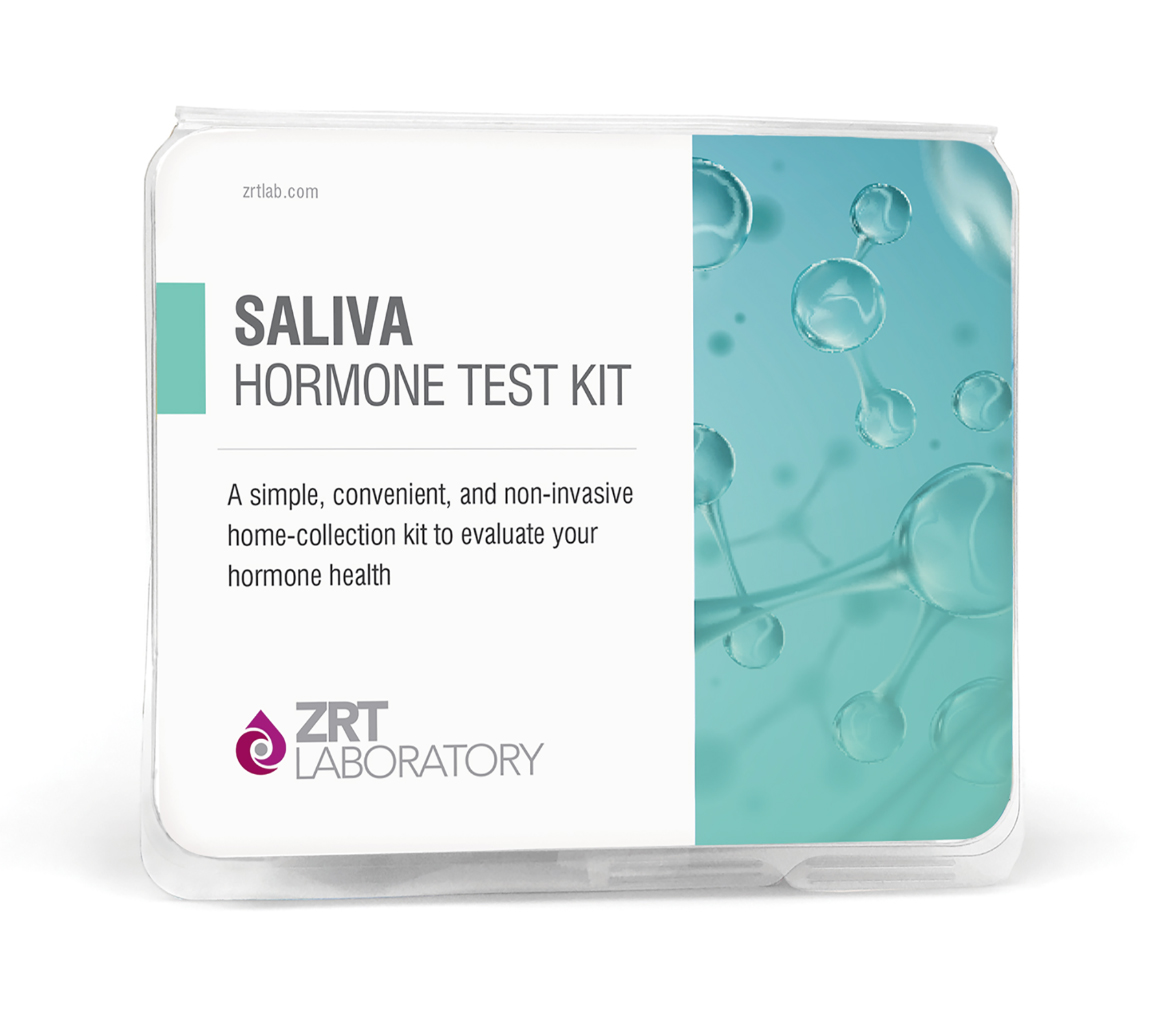
At-Home Hormone Saliva Test Kit
Know your hormone levels with saliva testing kits from Morgan Compounding. Test yourselves in the privacy of your own home. Simple sample collection with detailed instructions.
How Media and Education Shape the Menopause Conversation
The release of The M Factor documentary sparked a broader discussion about menopause and the limited awareness many patients report having prior to entering this phase. The documentary provides an opportunity for providers and pharmacists to support patient education better.
When we equip patients with better questions and prepare providers to respond with clarity, options like compounded medication can be evaluated more thoroughly. While compounded hormones may not be appropriate for every patient, their availability gives healthcare providers more flexibility in decision-making.
Serving Local Needs and Beyond
Morgan Compounding Pharmacy serves patients and providers throughout cities and communities in Georgia, working closely with healthcare teams to support patient needs. We prepare all compounded hormone prescriptions based on a licensed provider’s order and follow pharmacy compounding standards and practices.
Whether a patient is seeking additional support during menopause or a provider is exploring options that require customized dosage forms, Morgan Compounding Pharmacy may be a helpful resource. The ongoing conversation around menopause — fueled by media, medical research, and patient stories — continues to highlight the value of personalized care and professional collaboration.
Morgan Compounding Pharmacy remains committed to supporting patients and providers with compounded hormone therapy services that are prepared with care, precision, and regulatory compliance.
Contact Morgan Compounding Pharmacy today!


